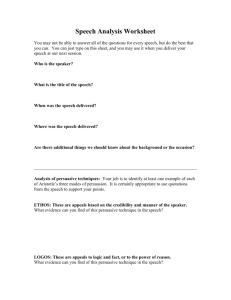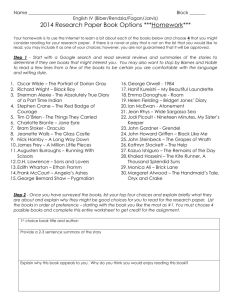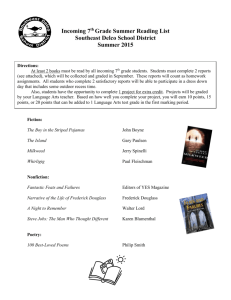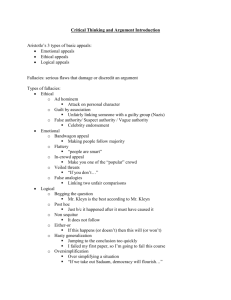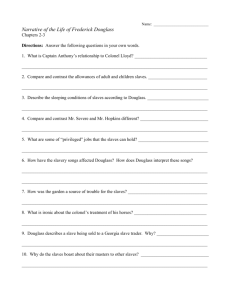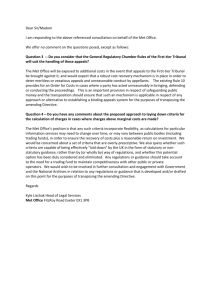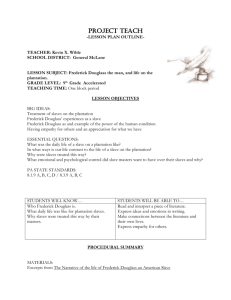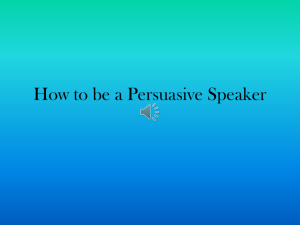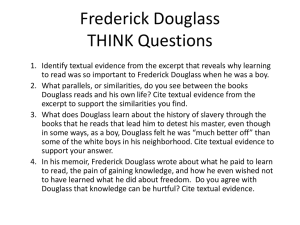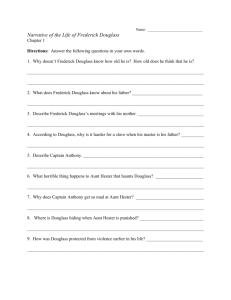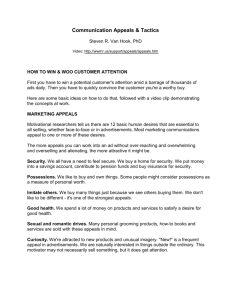Speech Analysis Worksheet
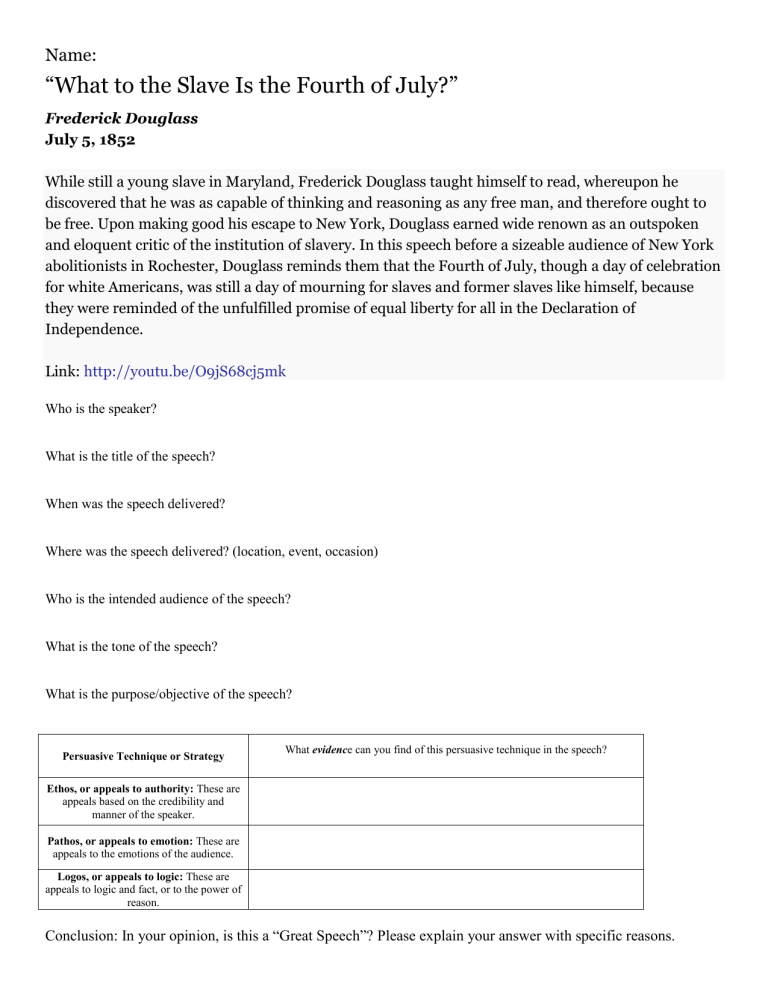
Name:
“What to the Slave Is the Fourth of July?”
Frederick Douglass
July 5, 1852
While still a young slave in Maryland, Frederick Douglass taught himself to read, whereupon he discovered that he was as capable of thinking and reasoning as any free man, and therefore ought to be free. Upon making good his escape to New York, Douglass earned wide renown as an outspoken and eloquent critic of the institution of slavery. In this speech before a sizeable audience of New York abolitionists in Rochester, Douglass reminds them that the Fourth of July, though a day of celebration for white Americans, was still a day of mourning for slaves and former slaves like himself, because they were reminded of the unfulfilled promise of equal liberty for all in the Declaration of
Independence.
Link: http://youtu.be/O9jS68cj5mk
Who is the speaker?
What is the title of the speech?
When was the speech delivered?
Where was the speech delivered? (location, event, occasion)
Who is the intended audience of the speech?
What is the tone of the speech?
What is the purpose/objective of the speech?
Persuasive Technique or Strategy
What evidenc e can you find of this persuasive technique in the speech?
Ethos, or appeals to authority: These are appeals based on the credibility and manner of the speaker.
Pathos, or appeals to emotion: These are appeals to the emotions of the audience.
Logos, or appeals to logic: These are appeals to logic and fact, or to the power of reason.
Conclusion: In your opinion, is this a “Great Speech”? Please explain your answer with specific reasons.
